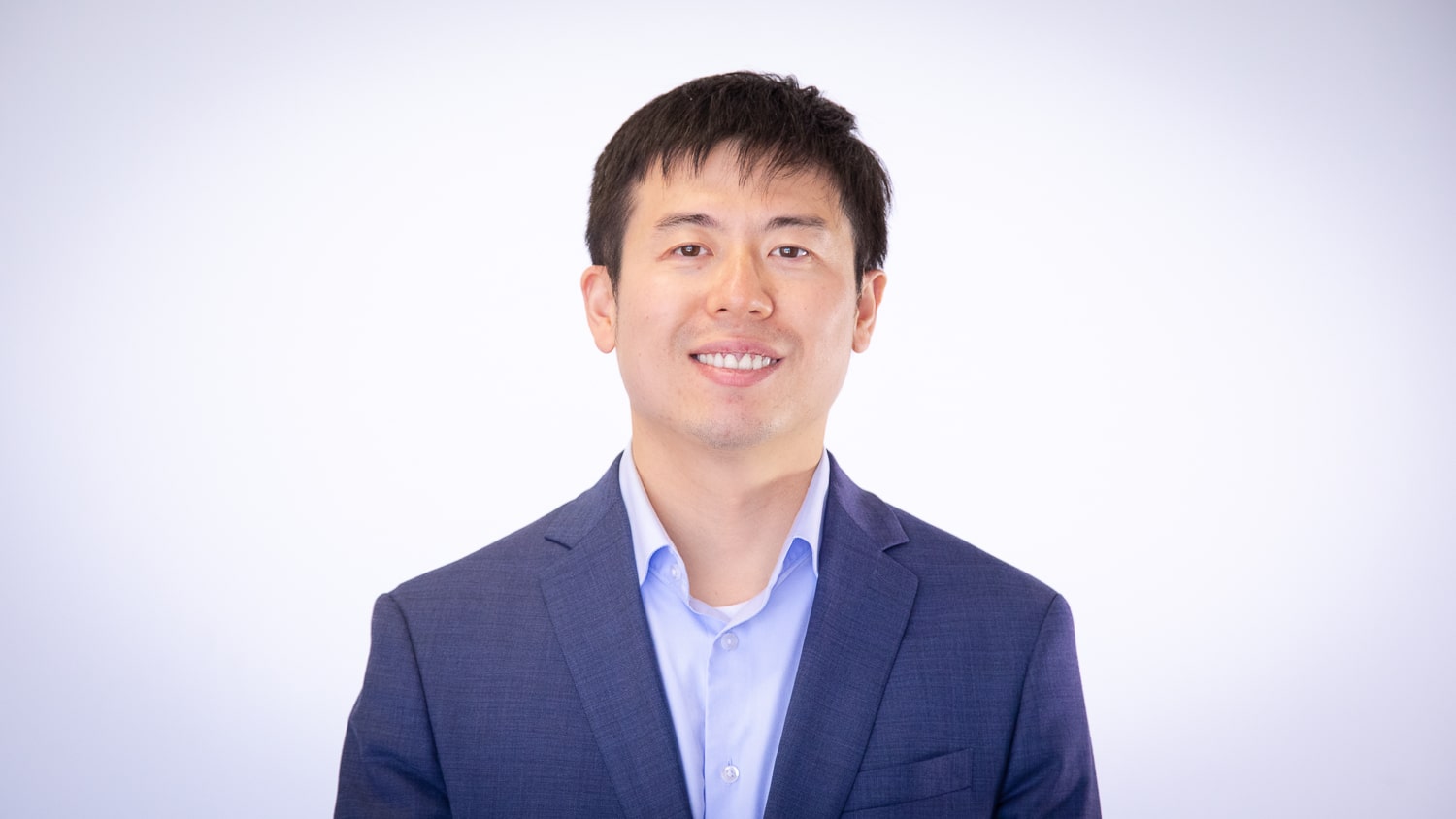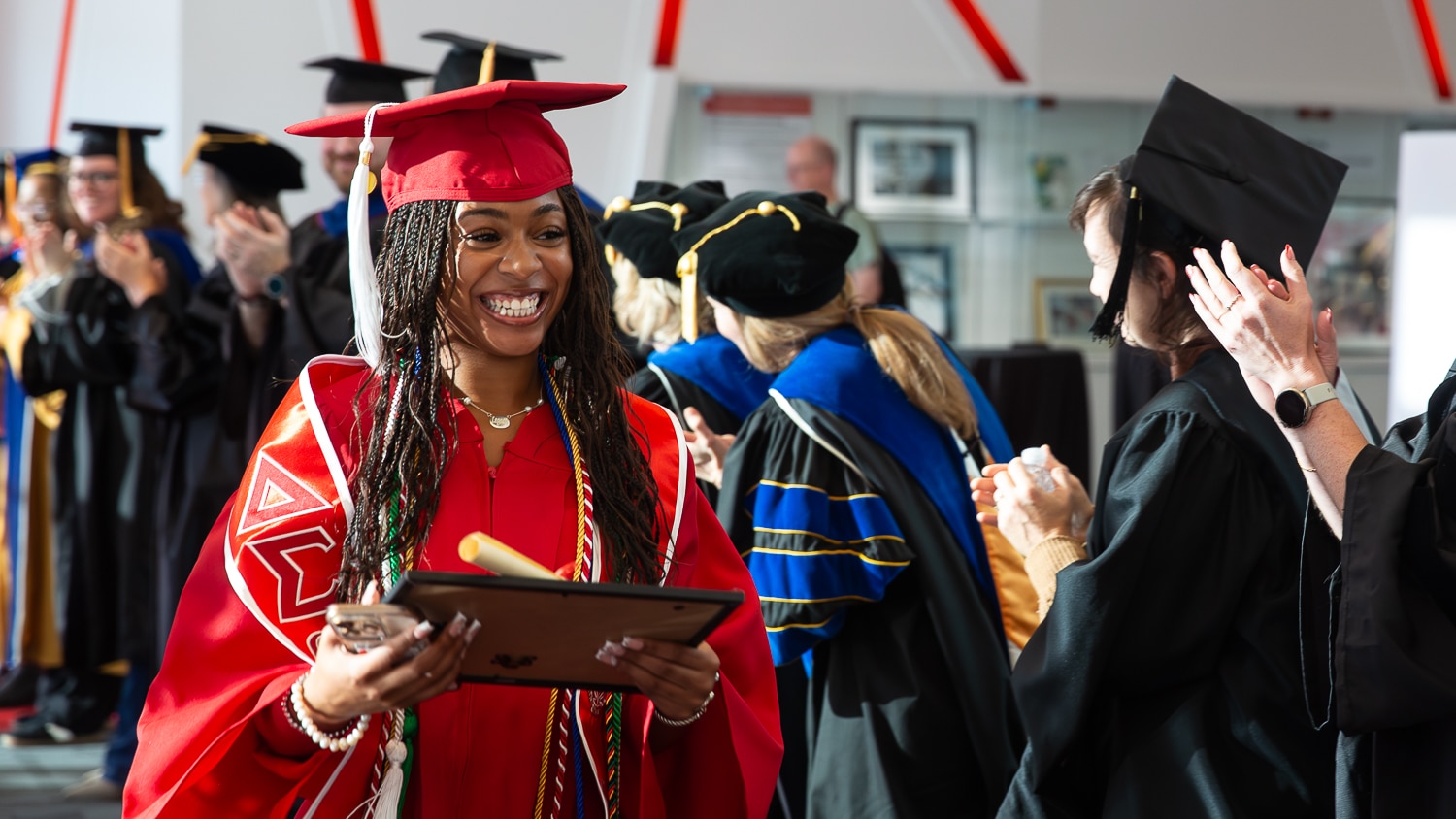Dr. Xiangwu Zhang Named Associate Dean for Research

By Julie Watterson
Dr. Xiangwu Zhang was named associate dean for research (ADR) in the Wilson College of Textiles (COT) at NC State University, effective October 10. He previously served as associate department head and director of graduate programs in the College’s department of Textile Engineering, Chemistry and Science.
In his new role, Zhang will work with College leadership, faculty, staff and students to continue growing the formal research programs within the college. He brings to the ADR position a diverse background encompassing leadership, research and the development of strong and successful relationships with diverse funding agencies and companies, both in the U.S. and internationally.
Zhang is an internationally recognized leader in nanostructured and multifunctional polymer, fiber, textile and composite materials with an emphasis on energy storage applications. His research encompasses both fundamental and applied textile materials studies such as synthesis and physical characterization, as well as system design and fabrication.
His personal research record is strong having received more than $7 million dollars in funding from the U.S. government, foundations and industry. He has published two books, seven book chapters and 180 peer-reviewed papers in high-impact peer reviewed journals and 200 conference papers and presentations.
As ADR, Zhang will be responsible for the success and service impact of the College Research Office. In close collaboration with Dr. Behnam Pourdeyhimi, associate dean for industry research and extension, he will be responsible for implementation of the College strategic plan in relation to research including fostering the success of faculty and staff in growing their extramurally funded research programs; forming and leading interdisciplinary teams for large proposals; overseeing College-level research operations and compliance; representing the College’s research programs with stakeholders; and enabling strong collaboration in research.
Zhang replaces Dr. Harold Freeman who recently relinquished the position after 12 years as associate dean for research. He remains on faculty as the Ciba Professor of Dyestuff Chemistry.
We asked Dr. Zhang to share some thoughts about his new position.
What do you think is the most important characteristic you bring to this role?
XZ: I have diverse experience in developing research programs by partnering with government agencies, university institutes/centers, nonprofit organizations and the industry. This enables me to work closely with our talented faculty, staff and students to advance the research mission of the Wilson College of Textiles and provide visionary leadership and collaborative services to the University, state and global communities.
What do you think are the College’s two or three greatest strengths in terms of research and how will those strengths helps us evolve?
XZ: Our College is the global academic leader in textile education, research and service. The biggest strength of our College is that we have talented and dedicated faculty, staff and students. We also have world-class textile research facilities and strong support from the textile and related industries. With these strengths, we will be able to build strong public-private partnerships via engaging students, staff and faculty in serving the local and global textiles and related industries in addressing economic and social challenges that are critical to improving our society.
What are you most excited about doing as Associate Dean of Research?
XZ: I am very excited about working with the college leadership team, faculty, staff and students to build public-private partnerships and strengthen our research programs so that we can better address the grand challenges of the textile, apparel and related industries in the state, nation and the world.
What is the biggest challenge for this position/the COT from a research standpoint and how will you solve for that?
XZ: Among the various challenges that we are facing, the biggest one is how to expand our research programs and, at the same time, capitalize on our world’s leading faculty, staff and resources to develop future global leaders and support the textiles enterprise in education, research and industry service. To address that challenge, we must align our research mission with the College’s strategic plan and leverage the opportunities that exist in higher education and the textile industry in North Carolina and globally.
- Categories:


